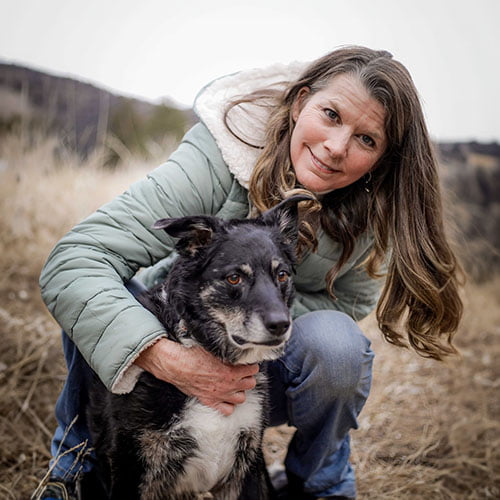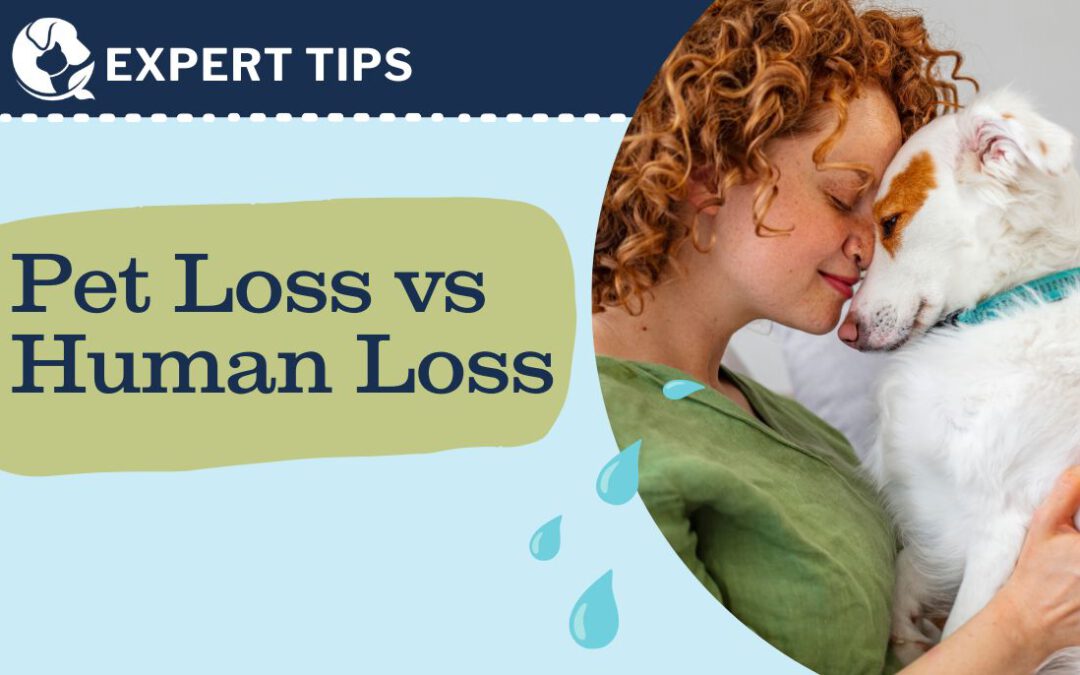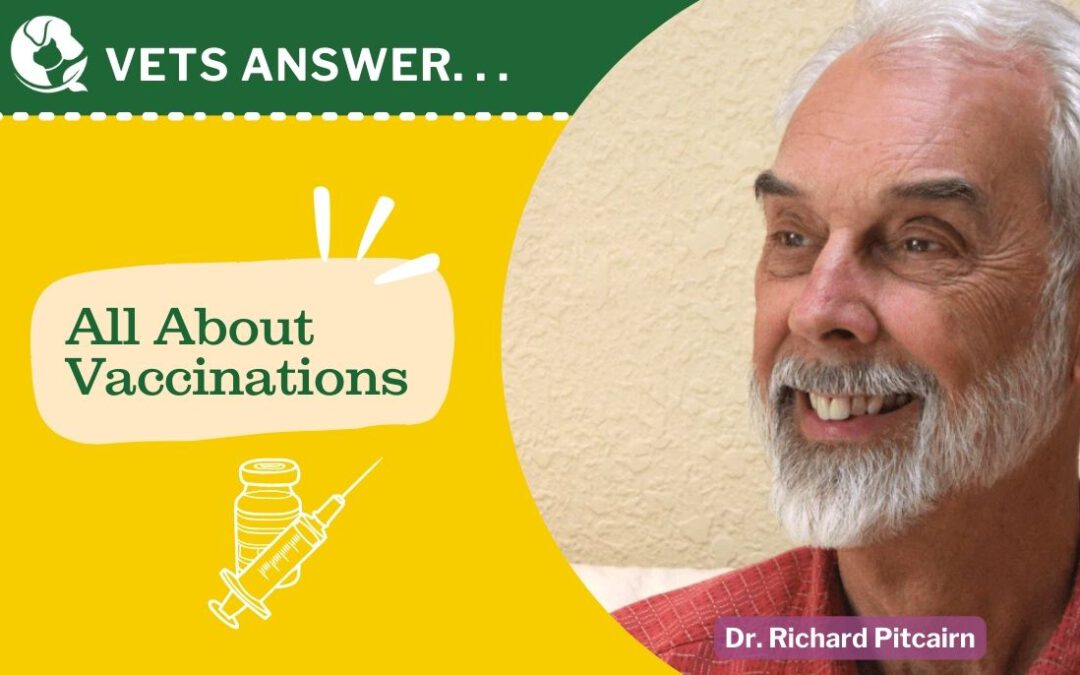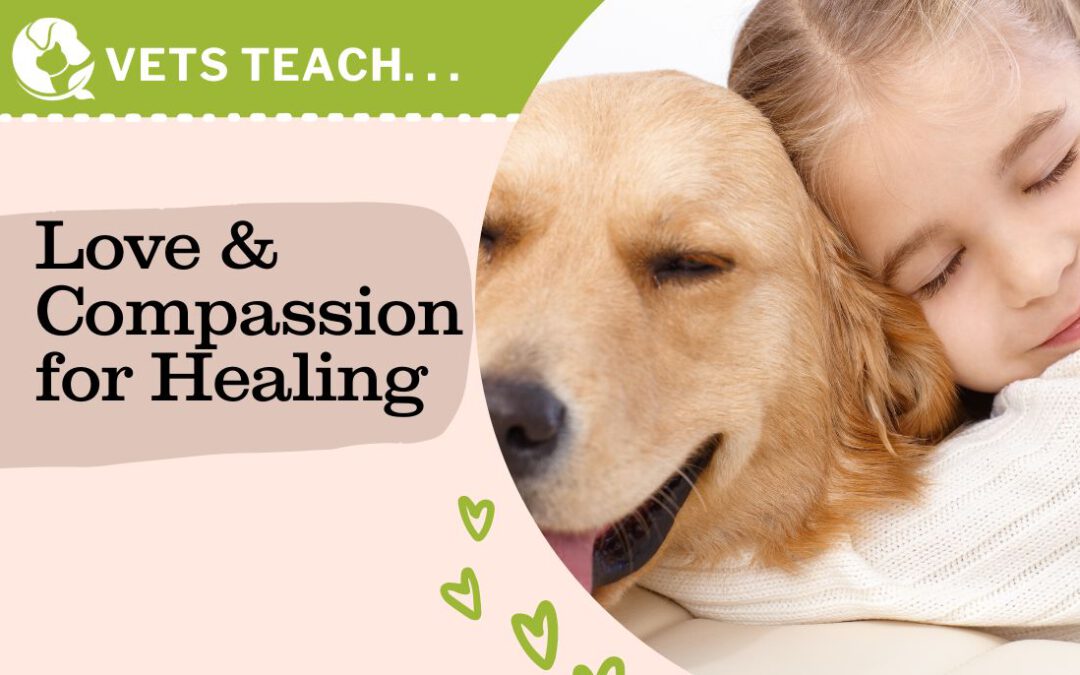Let’s look at the vaccine question from my perspective as a practitioner of homeopathic medicine. Not from the allopathic model that assumes vaccines to be useful and safe with occasional aberrations.
Most of us are aware that vaccine-caused diseases — such as immune disorders, bleeding problems, tumor formation — are recently receiving attention from the allopathic community. However, the premise that these are exceptions to a basically safe procedure is not the same viewpoint as that which I am presenting to you today.
My understanding of the importance of vaccination in animal diseases gradually developed over several years. I began homeopathic practice without considering vaccination as a factor of special importance. So, what I did was to consider the totality of symptoms in the case and choose the remedy which seemed to be the similimum based on that picture. This is a classical homeopathic procedure and, ordinarily, one which would be effective. However, there were a significant number of cases that would not react curatively. Though there was improvement in some respects, nonetheless, a cure was not forthcoming. Eventually, through following the case over a period of time, the image of the remedy Thuya would emerge — which when administered would resolve the case which had been so difficult.
What, then, is the significance of Thuya as a remedy? Thuya is the most important remedy to be used for that state induced by vaccination. Other remedies noted to have this correspondence are Sulphur, Mezereum, Malandrinum, Sarsaparilla, Carcinosin, and Silicea among others. Malandrinum and Carcinosin are interesting remedies because both are nosodes — the former from horses with “grease heel” and the latter from a cancerous discharge from a human being. Thuya, Mezereum, and Sarsaparilla are vegetable remedies — Thuya from the Arbor vitae tree, Mezereum is known as Spurge olive, and Sarsa- parilla an herbal medicine. Sulphur, the element and Silicea, which is silicon dioxide or quartz are mineral remedies. Thus we have representations from all the major remedy classes.
It gradually dawned on me that the underlying problem in some of my difficult cases was a state of illness that had been induced by vaccination. So, rather than simply use a totality of symptoms to choose my prescription, I found it more effective to emphasize the rubric “Vaccination, effects of ” almost to the exclusion of other remedies. In this way, I was able to make progress in some very frustrating clinical situations.
Let me give you a few recent cases that demonstrate the usefulness of Thuya.
Case 1: Jack The Cat
Ten-month-old DSH, male cat. Ill since first obtained as a stray kitten about 12 weeks old. Symptoms primarily fever, diarrhea and vomiting. Associated symptoms were red gums, retained baby teeth, offensive breath, thirst, swollen cervical lymph nodes, craving for strange oods (cinnamon rolls, persimmons), blood at the end of penis, licking genitals, dragging bottom on floor, and very strong-smelling urine.
When neutered at age seven months, he developed fever, fear of noise, trembling, warm head, dilated pupils, pale gums with red line along the teeth, loss of appetite, craving for plastic, cardboard boxes and house plants, extraordinary hysterical fear on being allowed outside, dry stools with constipation, prolapsed third eyelids, crying in pain before passing a fluid stool, and vomiting any water drunk.
Several homeopathic remedies were given during this illness with sometimes definite improvement, almost to normal. However, the condition always recurred and the previous remedy would then not be effective. Based on the symptoms of chronic diarrhea of offensive stools, with lots of gas causing sputtering sounding stool, and crying in pain before urinating — this cat was given Thuya 30C.
Client reported almost immediate improvement with return to “97% himself ” within a few hours. He has continued to be free of most of these symptoms since this one treatment with Thuya.
Case 2: Jerri The Chow Dog
Three and 1/2 year old mixed chow dog. Afflicted with sarcoptic mange and recurrent ear infections for 2 and 1/2 years. Treated allopathically without resolution of the problem (Mitaban and Paramine dips, immune system stimulants, bacterial extracts, etc.).
Skin condition characterized by itching, hair loss, thickened dark skin, red irritated skin involving primarily the feet, lower legs, around the eyes, abdomen, top of the head, and inside both ears. Patient has also become timid & cautious with the other dogs.
Condition markedly ameliorated by a dose of Thuya 1M with regrowth of hair, normalization of appearance of the skin, reduction of ear inflammation, and return of normal personality and behavior.
Condition recurred, in milder form, one year later (after use of homeopathic nosodes for disease protection) and was resolved by one dose of Thuya 10M.
Case 3: Monster The Tiger Stripe
Seven-year-old DSH, tiger stripe. Chronic diarrhea for 1 and 1/2 years with 1-3 bowel movements a day. Very offensive diarrhea with a lot of gas being passed. Thuya 200C, one dose, resulted in marked improvement, with a perfectly formed stool within three weeks.
Case 4: Mei-Ling The Shar Pei
Six months old, female charpei dog imported to Brazil from Kansas. Never well since first obtained, now is diagnosed with a seborrhea (biopsy) and skin fungal infection. The skin is dark, itchy, with red, scaly spots. These lesions spread rapidly over most of the body.
Client says the puppy was normal until receiving “puppy shots”. She began to lose hair all over, especially from flanks and front legs and on the back near the tail. Treated with oral antifungal drug and two ointments without improvement.
No effect from treatment with Sulfur 6X; temporary improvement with Rhus toxicodendron 200; rapid recovery after Thuya 200. Change for the better was very rapid with hair growing in faster than ever seen before with this dog.
Another dose of Thuya 200 needed three months later, after exposure to plaster and chemicals used in refinishing a room. Other remedies were needed, months later, for some lingering minor symptoms, but Thuya clearly turned this case around.
You can see from these cases that progress was dependent on the use of Thuya, the anti-vaccine remedy. Though this was not necessarily the final remedy for these patients, it seemed to be a necessary prescription. It is as if vaccinations have the ability to block response to a constitutional remedy, an obstacle that must be dealt with before cure can be underway.
Homeopathic Discovery of Vaccinosis
Of course, this “discovery”, which was actually more the reinvention of the wheel, prompted me to search the homeopathic literature for information about the relation of vaccination to disease. The most important source on this phenomenon is the book Vaccinosis and Its Cure by Thuja with Remarks on Homeoprophylaxis by J. Compton Burnett, M.D. The first edition of this book appeared in London in March 1884.
It is here that vaccination is first clearly described as a chronic disease. The effect of vaccination, besides the physical effects of stimulating an antibody response, is to establish a chronic disease — one that is long-lasting, indeed, in some cases a lifelong, condition. Burnett refers to the chronic disease that results from vaccination by the name Vaccinosis. So, we will adhere, in this discussion, to the same convention. Vaccinosis is to be understood as the disturbance of the vital force by vaccination that results in mental, emotional, and physical changes that can, in some cases, be a permanent condition.
Burnett gives several cases that demonstrate this. Several of them are in infants and children, showing the profound effects of vaccination on the growing organism. However, I wish to emphasize the long-standing effects of vaccination so will mention a couple of example cases to you.
Human Case 1
A woman, of about age 50, suffered greatly for 20 years from a condition of terrible pain in the eyes. The attacks of pain were so severe, that she would be confined to bed for days at a time and for some periods as long as six weeks.
In spite of many examinations and treatments by allopathic doctors, no relief was forthcoming.
The patient was confined to a darkened room, her head bound, and crying from the pain. These attacks were always preceded by what seemed to be “flu” and the frequency of these episodes was such that she was confined to her room about half of every year.
As this patient had been extensively vaccinated, the use of Thuya as a remedy was used by Burnett. Thuya, has a type of cephalgia similar to that described by the patient and, indeed, use of Thuya 30C successfully resolved the condition in six weeks. A follow-up in one year showed that the cure held.
Human Case 2
A young woman, 19 years of age, suffered from severe headaches for nine years. The attacks were characterized by a pain in the back of the head as if it were being squeezed in a vice with throbbing of the head as if it would burst. These attacks occurred once or twice a week.
Associated symptoms were habitual constipation, poor appetite, a tendency towards styes, eruption of boils, cold feet, easily made motion-sick, tendency to faint, skin sensitive to wind which becomes rough with cracks forming in the lips. The patient had been vaccinated against smallpox at three months of age, seven years of age, and again at fourteen years. In spite of this vaccination, she had actually come down with smallpox at age 10!
She was treated with Thuya, in low potency, over a period of several months and was eventually cured of her symptoms. A two-year follow-up confirmed the stability of the cure.
Many other cases are described in Burnett’s little book. Lest you think that only head pain is the outcome of vaccinosis, let me hasten to give brief descriptions of some of the others.
Observed symptoms of vaccinosis
- Wasting away (marasmus) of an infant being nursed by a recently vaccinated mother.
- Several cases of skin eruptions, pimples, ringworm.
- Enlarged cervical lymphatic glands and unhealthy lungs tending towards tuberculosis.
- Loss of hair, in patches, on the face of men.
- Unusual susceptibility to influenza and general ill-health.
- Facial acne and nasal dermatitis.
- Diseased fingernails.
- Chronic vertigo.
- Paralysis and muscular weakness.
- Very painful spine, with weakness, inflammation, twitchings, etc.
- Hand cramps and enlargement of the spleen.
- Insufficient growth in children with paralysis on one-half of the face.
These cases and others, in subsequent books, began to present to the homeopathic community the nature of vaccinosis. Indeed, it was possible, from these cases for Burnett to declare vaccinosis a variant of the sycosis miasm. As you will already know, sycosis is characterized by affections of the skin, the lymphatics, the immune system, susceptibility to fungal infections, susceptibility to cold, damp weather, arthritis, affections of the blood, and many other symptoms of this sort. Most importantly, it is typical of the sycotic miasm, and therefore of vaccinosis, to develop growths of all types — cysts, polyps, warts, tumors and cancers.
Some of Burnett’s other books, especially Tumors of the Breast and their Treatment and Cure by Medicines, Curability of Tumors by Medicines, and Delicate, Backward, Puny and Stunted Children bring out some of the variety inherent in vaccinosis and the tremendous damage it can do once established.
One more thing I will mention before leaving the subject of Burnett’s work. This is his interesting observation that the person that is most susceptible to contracting the disease being vaccinated against is more likely to die (after being vaccinated) when they do come in contact with the natural disease. In other words, rather than protecting some individuals as planned, it actually makes them more susceptible. The vaccination having created a chronic disease ahead of time, can predispose the patient to a more serious natural illness which combines with the established vaccinosis. As we shall see later in this presentation, there is evidence that this is what has happened in vaccinated populations.
Does this extend our understanding of vaccinosis? We can expand our definition to say that vaccinosis is the establishment of, instead of the acute natural disease, a chronic condition which now has the time to develop a multitude of manifestations not ordinarily seen. Another way of saying this is that the process of laboratory modification of a viral disease to make a vaccination strain is the conversion of the disease from acute to chronic. The virus has been changed so that its natural tendency to arouse a strong response is gone. Instead, it can be introduced into the body in a form that does not elicit much of a reaction. The result is the establishment of a chronic disease that has never been seen before in clinical practice.
To illustrate what I mean by this, I would like to briefly discuss aspects of three of these vaccine diseases—chronic canine distemper, chronic rabies, and chronic feline panleukopenia.
Chronic Canine Distemper
Canine distemper, a very old disease of dogs, is well-known in its clinical manifestation. According to The Infectious Diseases of Domestic Animals1, the major symptoms are:
- Watery discharge from eyes and nose.
- Conjunctivitis, with discharge (eventually purulent).
- Vomiting and diarrhea, loss of appetite.
- Watery feces, mixed with mucous, offensive and often bloody feces; intense malaise, loss of weight, and death.
- Severe, fetid diarrhea.
- Spasms, fits, epileptiform seizures.
- Paralysis.
- Eruption around the mouth where hair meets the naked skin of the lips.
- Swelling of the feet, red footpads.
- Pneumonia.
- Eruptions on the skin of pustules, on the abdomen, inside the thighs, and elsewhere.
- Emaciation
What I am suggesting to you is that, because of repeated vaccination, the acute disease of canine distemper has changed form to appear as a variety of chronic diseases. The original disease, Distemper, has been, for the most part, replaced by Distemper Vaccinosis, a chronic disease of great variety. This chronic disease also creates a susceptibility to new acute forms of distemper like parvovirus. Because, by its nature, chronic disease is more developed than an acute disease, the many ramifications of this condition have been given new names from the mistaken idea that they are different and distinct diseases.
In Table 1 (NB: See link below), the acute, natural form of the Distemper has become the chronic disease indicated.
Chronic Rabies
Let’s now look at Rabies in the same way. Some of the symptoms of rabies are known to be similar for dogs and cats.
- Restlessness, uneasiness, apprehensiveness- ness and a developing viciousness. This is most apt to be manifested toward strangers.
- Dogs are normally affectionate and may hide away and shun company.
- Dogs normally independent may become unusually attentive and affection- ate (an expression of anxiety).
- Desire to travel away from home for long distances.
- If restrained, it will chew viciously on metal chains or anything that is used to restrain or confine it.
- The dog may inflict severe bite wounds on itself.
- Strange cries and hoarse howls (partial paralysis of the vocal cords).
- No interest in food.
- Unable to swallow because of paralysis of muscles of deglutition.
- Eyes staring with dilation of the pupils.
- Unable to close the eyes; cornea becomes dry and dull.
- Hanging down of the lower jaw.
- Swallows pieces of wood, stones, its own fecal material and other foreign bodies.
- Destruction of blankets, towels, clothing.
- Convulsive seizures.
- Muscular incoordination.
- Agonizing pain and constriction in the throat; spasms of the throat.
- Increased sexual desire; satyriasis, nymphomania; attempted rape.
- Inflammation of the heart muscle; disturbed heart function, irregular rhythm, heart rate too slow or too fast; heart failure.
- Periods of excitement and jerky breathing; cluster breathing.
Now let’s consider how this acute disease has, through vaccination, become a variety of “new” ailments. These symptoms of Rabies Vaccinosis are not familiar to us because, until vaccines were widely employed, we never saw rabies in a chronic form in our patients. Even now, these effects of rabies’ vaccination are generally unrecognized even though a careful follow-up of changes in a dog’s temperaments and physical condition after rabies’ vaccination will often confirm this.
Chronic Feline Panleukopenia
The third, and final, disease we are to consider is Feline Panleukopenia. The symptoms of this dread disease are:
- Lassitude.
- Inappetence.
- Fever.
- Rough, unkempt coat.
- Indifference to owner or surroundings.
- Rapid weight loss.
- Dehydration.
- Vomiting.
- Profuse, watery, diarrhea (often blood-tinged).
- Mucopurulent discharges from the eyes and nose.
Feline leukemia, in the primary stage, is characterized by fever, malaise, anorexia, lymph- adenopathy, leukopenia, anemia, and thrombocytopenia. Thus, in many ways, chronic pan- leukopenia looks like feline leukemia. It is like the acute syndrome of panleukopenia stretched out in time so that it becomes chronic. The changes to a chronic disease condition are shown in table 3 (NB: linked below)
The Homeopathic Perspective
Probably, by this point, many of you are wondering what I can mean about panleukopenia (or any of these diseases) becoming a chronic disease like feline leukemia.
I am speaking from the homeopathic perspective that understands that every being, including viruses, has a life force behind it. This vital force, which is the life force or chi, is the energetic pattern that develops and maintains the physical form. It is “upstream” to the flow of information that results in the physical condition. When the usual, natural physical expression is changed or blocked, as happens when the chronic vaccine disease is established, then the life force behind the disease manifests itself in a different way.
These new forms, we give new names. We haven’t really eliminated anything by vaccination, we have just changed its shape.
I picked these three diseases for discussion because of their importance to dogs and cats who have suffered from them for thousands of years. They would seem to have a susceptibility to these diseases that has never been satisfied. Now, with the extension of these diseases into a chronic form with vaccination, the influence of these diseases on the dog and cat species has never been so great as they are today.
Are Vaccines Effective?
The last thing I want to consider in this discussion is the larger question — are vaccines really effective in preventing disease? To answer this question is more difficult than it would seem at first. We don’t really have a system for tabulating the incidence of the common diseases of dogs and cats, for example. There are figures for some of the reportable diseases of livestock, but the rapid turnover of these animals makes long term studies almost impossible. However, what we can do is kind of a reverse process of what we usually find ourselves doing as veterinarians. Instead of using animals to study human disease, let’s use human disease to answer our question. There are statistics for common human diseases and we can use these to answer our question about the efficacy of vaccinations.
Smallpox
Let’s start our evaluation with smallpox which was the disease for which Jenner developed his method of vaccination in 1796.
There are two things of interest around this time of Jenner’s early work. First is that James Phipps, the eight-year-old boy initially vaccinated by Jenner in 1796, was revaccinated 20 times, and died at the age of twenty. Second, Jenner’s own son, who was also vaccinated more than once, died at the age of twenty-one. Both succumbed to tuberculosis, a condition that research has linked to the smallpox vaccine.
It is apparent from the beginning that doctors were confused about the question of vaccine protection. They thought that because the specific syndrome of smallpox did not appear that the vaccine was effective. They did not see that the subsequent overall level of health of the boys receiving the vaccine was equally an indicator of vaccine effectiveness in that the purpose of using the vaccine was to maintain health. If the vaccine prevented a particular illness but weakened and made sick the one receiving it, then this must be part of the complete evaluation made of the procedure.
Another thing of importance to understand in evaluating the significance of smallpox vaccination is that smallpox and other communicable diseases were declining before vaccination programs were enforced. This is attributed to the sanitation reforms and nutritional teachings instituted around the mid-1800s as much as to the vaccination programs as these other communicable diseases, for which there was no vaccination, were also declining at the same rate.
The interesting thing, however, is that the incidence of smallpox actually increased once vaccination programs were instituted. In Jenner’s time, there were only a few hundred cases of smallpox in England. After more than fifteen years of mandatory vaccinations, in 1870 and 1871 alone, more than 23,000 people died from the disease. Later, in Japan, nearly 29,000 people died in just seven years under a stringent compulsory vaccination and revaccination program.
This increase in smallpox deaths was associated with a noticeable lack of protection — not the best combination of events. For example, in Germany, over 124,000 people died of smallpox during the same epidemic. All had been vaccinated. Additionally, (unaltered) hospital records consistently show that about 90 percent of all smallpox cases occurred after the individual was vaccinated.
This lack of efficacy and increase in disease incidence, while other communicable diseases were declining, led to the refusal of smallpox vaccination by some countries. This resulted in a drop of the incidence of the disease that is quite remarkable.
In Australia, when two children died from their smallpox shots, the government terminated compulsory vaccinations. As a result, smallpox virtually disappeared in that country (three cases in fifteen years). When England began to reject vaccination, then the incidence of smallpox deaths decreased accordingly.
Polio
This is another disease for which people assume that vaccination has made a great difference in incidence. However, let’s look more closely at the facts.8 From 1923 to 1953, before the Salk killed-virus vaccine was introduced, the polio death rate in the United States and England had already declined on its own by 47% and 55% respectively. Statistics show a similar decline in other European countries as well.
When the vaccine became available, many European countries questioned its effectiveness and refused to systematically inoculate their citizens. Yet, polio epidemics also ended in these countries as well.
Additionally, as with the smallpox vaccine, the number of reported cases of polio following mass inoculations with the killed-virus vaccine was significantly greater than before mass inoculations. Though these facts are readily available, the mass vaccination against polio has continued with the result that most of the cases of this dread disease are now attributed to the vaccine.
In 1976, Dr. Jonas Salk testified that the live-virus vaccine used almost exclusively in the United States since the early 1960s, was “the principle if not the sole cause” of all reported polio cases in the United States since 1961.
The Federal Centers for Disease Control recently (Feb. 1992) admitted that the live-virus vaccine has become the dominant cause of polio in the United States today. According to CDC figures, 87% of all cases of polio between 1973 and 1983 were caused by the vaccine. More recently, from 1980 through 1989, every case of polio in the U.S. was caused by the vaccine. During this same time period, three of the five people that caught polio during foreign travel were previously vaccinated against the disease.
Measles
Measles is an especially interesting disease for us to look at because of its close similarity to canine distemper.
The measles vaccine was introduced in 1963, yet in the United States and England, from 1915 to 1958, a greater than 95 percent decline in the measles death rate had already occurred.12 In addition, the death rate from measles in the mid-1970s (which was several years post-vaccine) remained exactly the same as in the early 1960s (pre-vaccine), e.g., .03 deaths per 100,000.
Once again, the efficacy of vaccination in prevention of this disease has not been established. According to a study conducted by the World Health Organization, chances are 14 times greater that measles will be contracted by those vaccinated against the disease than those who are left alone. According to Dr. Atkinson of the CDC, “measles transmission has been clearly documented among vaccinated persons. In some large outbreaks…. over 95 percent of cases have a history of vaccination…”
In addition, of all reported cases of measles in the U.S. in 1984, more than 58 percent of school-age children were “adequately” vaccinated.
In 1985, the federal government reported 1,984 non-preventable cases of measles. But 80 percent of these so-called “non-preventable” cases occurred in people who had been properly vaccinated. More recent outbreaks continue to occur throughout the country, sometimes among 100 percent vaccinated populations.
In spite of the evidence for lack of efficacy of this vaccine, it is still strongly promoted. This continued use of a useless vaccine, however, is not without its price. It has been determined that the measles vaccine may cause ataxia, learn- ing disability, retardation, aseptic meningitis, seizure disorders, paralysis and death. It has also been investigated as a possible cause of or cofactor for multiple sclerosis, Reye’s syndrome, Guillain-Barre syndrome, blood clotting disorders, and juvenile-onset diabetes.
Another additional harmful effect is that the disease has changed form, and now affects primarily a different age group. The peak incidence of measles no longer occurs in children, but in adolescents and young adults. The risk of com- plications of pneumonia (3%) and liver abnormality (20%) have increased as a result.
Also, before the vaccine was introduced, it was extremely rare for an infant to contract measles. However, by 1993 more than 25 percent of all measles cases were occurring in babies un- der a year of age. CDC anticipates a worsening of this situation and attributes it to the growing number of mothers who were vaccinated during the last 30 years and therefore have no natural immunity to pass on to their children.
The implications for our having changed the natural disease into this new form are immense.
Whooping Cough (Pertussis)
Just as we have seen with the other diseases already discussed, the incidence and severity of whooping cough had begun to decline long before the pertussis vaccine was introduced in the 1940s.14 From 1900 to 1935, in the United States and England, before the pertussis vaccine was introduced, the death rate from pertussis had already declined by 79 percent and 82 percent, respectively.
However, once again, the usefulness of this vaccine is in doubt. Some studies indicate that the effectiveness of the pertussis vaccine may be as low as 40-45 percent. Further evidence indicates that immunity is not sustained. During an epidemic in 1978, of 85 fully vaccinated children, 46 (54%) developed whooping cough.
During a ten-month period in 1984, the state of Washington reported 162 cases. Of the cases aged 3 months to 6 years, 49% had been fully vaccinated against the disease. In the same year, of the 560 cases reported to CDC in the age bracket of seven months to six years with known vaccination status, 46 percent had received vaccine protection.
In 1986, in Kansas, 1300 cases of pertussis were reported. Of the patients whose vaccination status was known, 90 percent were “ad- equately” vaccinated.
As with measles vaccine, there are several known or suspected harmful effects from this vaccine. These included SIDS (Sudden Infant Death Syndrome — research shows that children die at a rate eight times greater than normal within three days after getting a DPT shot), encephalitis (the pertussis vaccine is used in animal experiments to help produce anaphylactic shock, and to cause an acute autoimmune encephalomyelitis), retardation and learning disorders, fever as high as 106 degrees — with pain, swelling, diarrhea, projectile vomiting, excessive sleepiness, high-pitched screaming, inconsolable crying bouts, seizures, convulsions, collapse, and shock. In studies, approximately 1 in 200 children who received the full DPT series suffered severe reactions.
In the 20 months prior to July 31, 1992 — 250 deaths and 7,200 adverse reactions linked to whooping cough vaccinations had been reported to CDC. In addition, the US Public Health Service announced that as of Nov. 16, 1992, some 3,200 pertussis vaccine claims against the US government had been filed.
Conclusion
We have considered the vaccination question from several aspects. We have looked at the way in which I think that routine vaccinations can result in the production of chronic disease in animals and I have made some specific suggestions as to the symptoms that result.
Also, we have considered the question of vaccine effectiveness with the surprising evidence that vaccines do not actually protect populations from disease in the way most people assume — though they do seem to modify the pattern in which the acute disease manifests.
I realize that this topic is a controversial one and that many will disagree with my conclusions. However, what I have observed is that if one can look at this question with an open mind, one will be surprised at the amount of evidence that is actually there. If you look at the larger perspective of disease incidence (of any type) in the weeks and months following vaccination, you will soon see confirmations of what I am presenting to you today. And once this is seen, the way is open for you to question the whole edifice.
Thanks so much to Dr. Pitcairn for this wonderful article. It was originally a presentation made in Minneapolis in 1993! Yes, pet vaccines have been a source of hot discussion for many years.–Dr. Jeff








